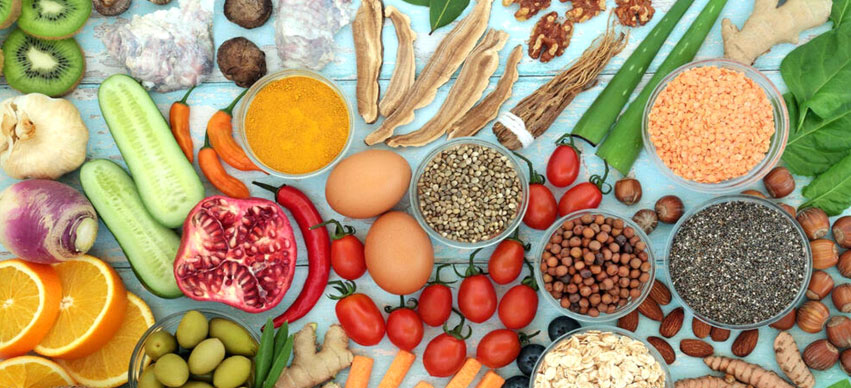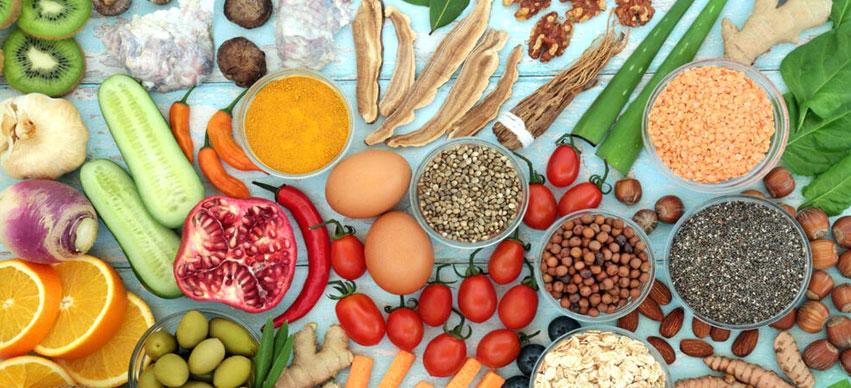What is Tempeh? Nutrition, Health Benefits, How to eat
4 Min Read


Irritable Bowel Syndrome (IBS) affects millions of Americans. It is a chronic condition that causes abdominal pain, bloating and diarrhea or constipation. The cause of this disorder is unknown, but it’s believed to be linked to the nervous system and the brain-gut axis.
There are different types of IBS and symptoms can vary from person to person. Some people have only one symptom, while others may experience more than two symptoms at once.
IBS symptoms include diarrhea, constipation, abdominal pain, nausea, vomiting, and fatigue. IBS affects about 15 percent of people worldwide.
The good news is there are foods you can eat to help manage your symptoms. Here are the top foods to eat for IBS symptom relief.
1. Beans
Beans are packed with fiber, vitamins, minerals, and antioxidants. Fiber helps move waste through the digestive tract and prevents constipation.You can add beans to salads and soups. You can also use canned beans in place of dried beans if you prefer.
2. Chia Seeds
Chia seeds contain omega 3 fatty acids, calcium, phosphorus, magnesium, manganese, zinc, copper, and iron. They are high in fiber to help with fiber. To add seeds to food, you can sprinkle them on various dishes like salads and oatmeal.
3. Yogurt
Yogurt contains probiotics, which aid digestion by helping to maintain healthy levels of bacteria in the digestive tract.Probiotic yogurt helps to regulate immune function, improve absorption of nutrients, and protect against harmful pathogens.
4. Nuts
Nuts are rich in protein, fiber, omega-3 fatty acids, antioxidants, vitamins, and minerals. Nuts also contain healthy fats that can help keep your gut lining healthy. Most kinds of nuts are good, including almonds, cashews, walnuts, pecans, hazelnuts, pistachios, peanuts, macadamia nuts, and Brazil nuts.
5. Salmon
Salmon is a lean meat that is high in Omega-3 fatty acids. These fatty acids reduce inflammation, promote brain health, and prevent heart disease.Omega-3s can help relieve stomach aches and cramps.
6. Oatmeal
Oatmeal is a whole grain food containing soluble fiber, which helps to ease constipation. Oatmeal is a natural laxative that works by stimulating the release of water and electrolytes into the colon.It is also a good source of protein, carbohydrates, and minerals.
7. Blueberries
Blueberries are rich in antioxidant flavonoids, which help to fight free radicals. Free radicals cause cell damage and contribute to aging. Free radicals also play an important role in cancer development.
8. Avocado
Avocados are loaded with fiber, vitamins, and minerals, and contain phytosterols, which help to decrease cholesterol levels.
9. Eggs
Eggs are packed with protein, vitamins, and minerals like choline, biotin, selenium, niacin, riboflavin, thiamine, folic acid, pantothenic acid, and vitamin D.
10. Broccoli
Broccoli contains sulforaphane, a substance that protects cells from damage. Sulforaphane has been shown to prevent inflammation and stimulate the growth of new blood vessels, both of which are helpful in relieving IBS symptoms.
11. Whole grains
Whole grains contain complex carbohydrates that provide fuel for the gut. Complex carbs are digested more slowly than simple carbs. This allows the small intestine to absorb nutrients more efficiently.
12. Bananas
Bananas contain potassium, which helps maintain fluid balance in the body. Potassium is essential for proper muscle contraction and nerve conduction.
13. Fennel seeds
Fennel seeds contain high amounts of fiber, which helps move waste along the gastrointestinal tract. Fiber also helps prevent constipation.
14. Cabbage
Cabbage contains compounds called glucosinolates, which act as antioxidants and anti-inflammatory agents. Glucosinolates also stimulate the secretion of bile acids, which aids in digestion.Cabbage contains indole-3-carbinol, a chemical compound that reduces inflammation and promotes healing.
15. Garlic
Garlic contains compounds called thiosulfinates, which have been shown to ease gastrointestinal distress. Thiosulfinates work by stimulating the production of bile acids, which help break down fats in the digestive tract.
16. Ginger
Ginger contains gingerols, which increase blood flow to the stomach and small intestine. Gingerols also have an antispasmodic effect, which reduces cramping and pain associated with IBS.Ginger also helps to reduce stomach ache and promote regular bowel movements if you have constipation from IBS.
17. Bone Broth
Broth has been used for thousands of years by people across cultures as an important part of their daily nutrition. Bone broth made from organic bones is thought to be good for our guts because it contains certain nutrients like calcium and magnesium which help keep us strong and healthy.
Eating a low FODMAP diet can help relieve some of your IBS symptoms. FODMAP stands for Fermentable Oligosaccharides, Disaccharides, Monosaccharides And Polyols.
These are short-chain carbohydrates trigger gas, bloating, diarrhea, and other GI issues if the food has high FODMAP content.
IBS can be very debilitating, but it doesn’t need to be. There are many foods that can relieve your symptoms. The key is finding what works best for you. The best diet is always one that is well-balanced.
You should always consult your doctor before making any changes to your diet.